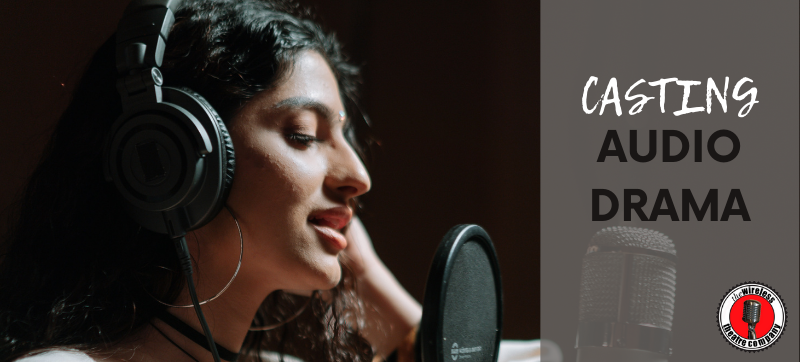
Casting Audio Drama
What do Wireless casting directors look for in a voice actor when casting audio drama?
Of course, it largely depends on what you’re casting for – age, accent, tone, delivery style are often deciding factors. When casting for drama an important element we listen for in voice reels is that each voice sounds suitably different from the other members of the cast – as without visuals it can get very confusing if two actors sound too similar.
For certain projects we will look for versatility; for example if an audiobook has a huge amount of characters it’s great to work with an actor who can give different personality of voice to each character. In dramas it can be great to have actors in the ensemble who can double/triple up on characters – but it’s important that their voice can genuinely change – not just in accent, but in tone, age range, pace etc – someone who is great at accents, but has a very distinctive husky voice, for example, may be able to play a lot of different characters across different projects, but probably couldn’t play too many different roles in one drama.
However, versatility isn’t always vital – certainly for non-fiction or books that don’t have plenty of characters the most important thing is that an actor can lift a story off the page and bring it to life, inject light and shade. Essentially, good storytellers with an engaging voice.
How does a casting director put together a large cast for a big multicast production?
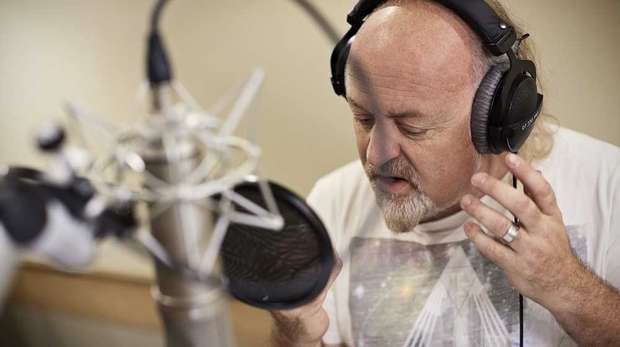
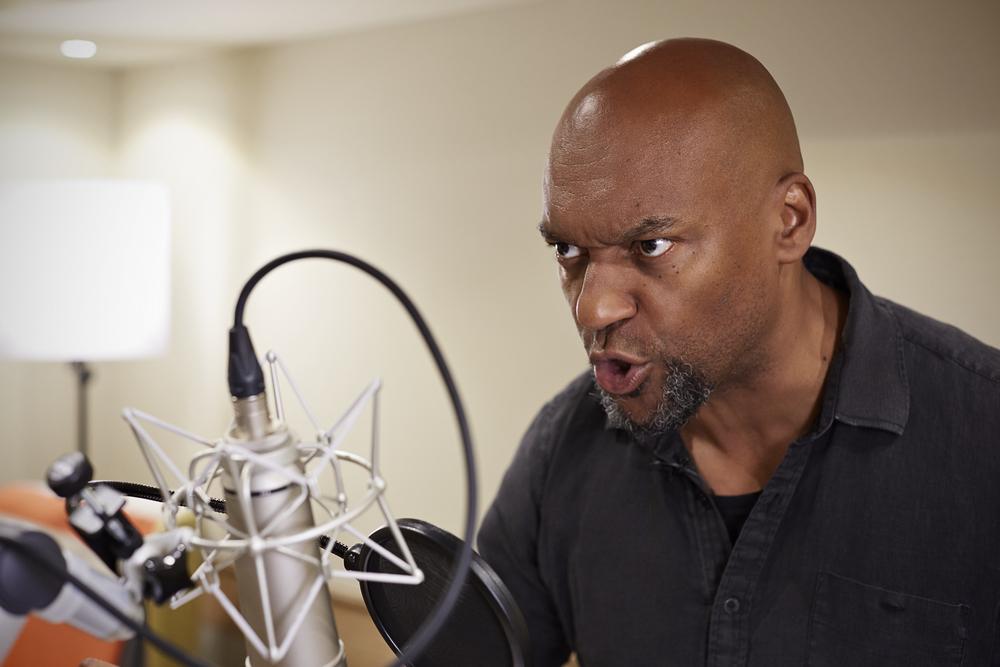
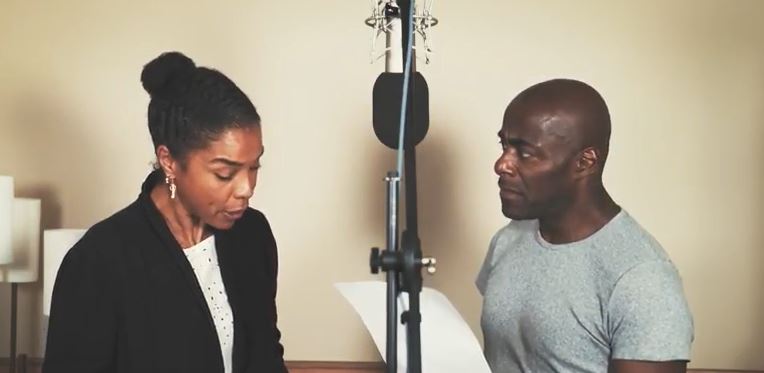
In casting, we work very closely with the director and producer. For the leading roles we make lists of actors who we think would be a good fit – depending on the project’s needs, these might be high profile actors. We put together a shortlist of about 5 per role, check the talent availability and then if it’s a project for an external client, we check in with them to ensure we’re going for actors that they are excited about.
If we don’t need to cast high profile actors then we put together a shortlist of performers and run auditions. For audio, these can usually be recorded by the actor directly into their mobile phone, which means we can get them quite quickly – with is a real bonus when working to tight timelines.
The director and producer would usually then look at the ensemble roles; and some projects have upwards of 50 characters. For these roles we’d start by looking at which roles could potentially played by one actor – i.e. characters which don’t appear in the same scene or too close to one another. Once we have grouped the ‘doubling’ we start to look at actors who could fill those within their skillset – for example; “which actor could definitely play ITALIAN WAITER, POLICE OFFICER, SCOTTISH WIZARD” etc. We’d probably put several choices for each role. For every project we try to work with a few actors who we haven’t worked with before, and who haven’t done audio work – as audio can be hard to get into. And across all roles, we keep a keen eye (ear) on diversity.
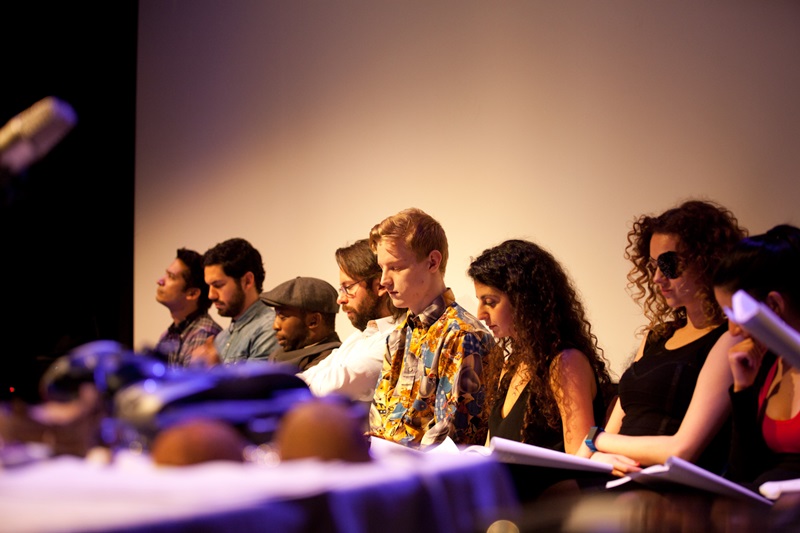
Can the director manage casting audio drama? Why is a casting director needed?
It’s not uncommon for the director or producer to manage their own casting in audio, and for very small productions it can sometimes work. But as ambitions for audio drama continue to scale up, it is not practical for the director to handle all the ins-and-outs of casting as well as concentrate on working with the actors in the studio. The director takes an active role, and ultimately they have the final say on who is cast because they are the creative leader of the project – but director’s don’t always have their own relationships with agents, aren’t always able to negotiate and also often don’t have the time or capacity to take on large scale casting so it makes a lot of sense for the project to have a casting person or team who are responsible for handling that side of things. Audio casting directors also usually have fantastic lists of audio actors who they can bring to a project.
Why is it important to have an experienced casting director for casting audio drama?
Voice casting is quite unique really as you’re casting based purely on what someone’s voice can bring to the project. Without visuals, it can be easy for listeners to get confused so ensuring voices don’t sound too similar is really important and can actually be quite hard to do… we are happy to admit that there have been a few times when we haven’t actually noticed quite how similar two actors sound until you’re in the vocal edit and you realise you yourself can’t work out which character is talking.
Although actors don’t need to learn their lines for books or dramas, it can be very hard to lift the words off the page. Books especially can be very tricky – Dickens for example, whose sentences meander and digress all over the place – so we’d need an actor with the chops and patience to handle that sort of text. It’s not a given that a great TV or stage actor will automatically be a good audio actor, so when casting audio we do need to really ensure that the actor will be able to deliver in the studio, when working fast or under pressure.
What are the biggest casting projects Wireless have completed?
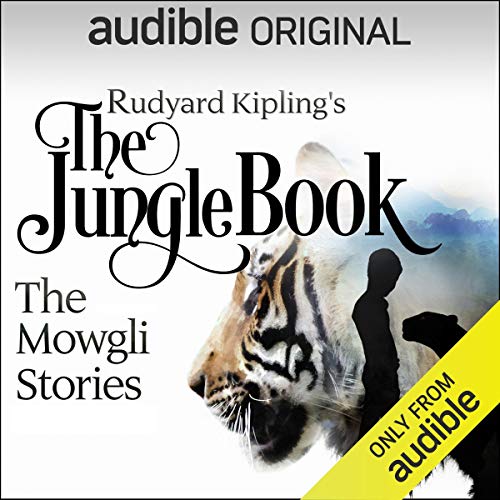
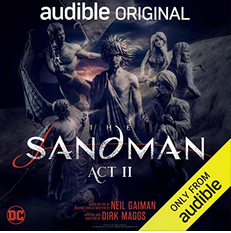
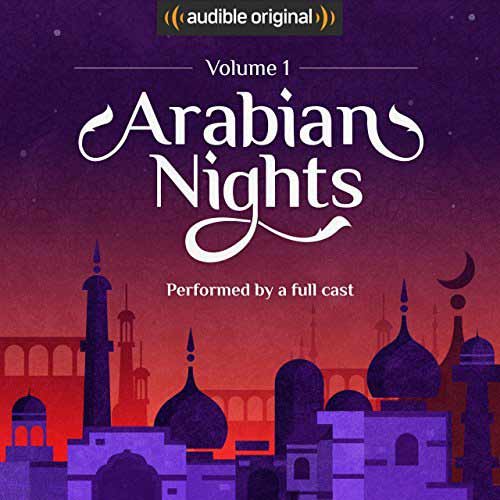
Ooh good question – we have cast a lot of large drama projects – many of which can be found on our Audible page, including ‘The Jungle Book’ (starring Bill Bailey, Colin Salmon, Richard E. Grant, Sacha Dhawan and Meera Syal), A Christmas Carol (starring Kenneth Cranham, Miriam Margolyes, Jenna Coleman, Derek Jacobi and Roger Allam), ‘Amok’ (starring Natascha McElhone and Adrian Lester) and ‘Passenger 23’ (starring Rebecca Hall, Max Beesley and Anthony Head) – but we’ve also worked on the ensemble casting on a number of super exciting drama or book projects, including ‘Arabian Nights’ Part 1 and 2, where we held auditions to find an authentic Iranian cast. And most recently we did the casting on JK Rowling’s new book ‘The Christmas Pig’ and handled all the ensemble casting for The Audible New York Times No 1 bestseller ‘The Sandman, Act II’ which had over 100 actors in the cast!
What is the role of the casting director when casting audio drama?
To absorb themselves into the text, attend casting meetings, do talent availability checks, provide lists of actors to the director/producer, audition the actors if needed, make offers and in our case to negotiate the contracts as well.
How can an aspiring casting director get experience in casting audio drama?
We would suggest writing to experienced casting directors and asking for experience or guidance. We’d also suggest doing it the way we did – by creating our own projects to cast!
What are the most enjoyable aspects of casting audio drama?
It’s brilliant when you get a new script/set of character breakdowns and you start building early lists – thinking about who might work. We really enjoy searching via Spotlight which is THE place to search for actors. It has a brilliant search capacity and there’s nothing better than putting in your search criteria and then listening through the options and landing on a real gem who you are really excited to offer an audition to. It’s also really fun when a project is finished and you get to hear all the actors you cast all performing together (especially if they didn’t actually record together which is often the case in audio!).
What are the biggest challenges casting directors face in casting audio drama?
Sticking to budget and actor’s availability.
Why choose Wireless Theatre when you need help casting audio drama?
We are hugely experienced – we have great relationships with talent agents and a strong understanding of what is needed for audio work. We are very knowledgeable about industry rates and terms and are skilled negotiators. We are also super-efficient at running casting calls when needed and have a great (ever growing) list of amazing versatile actors who we know can come in and play several roles and listeners would never know it was the same actor.
